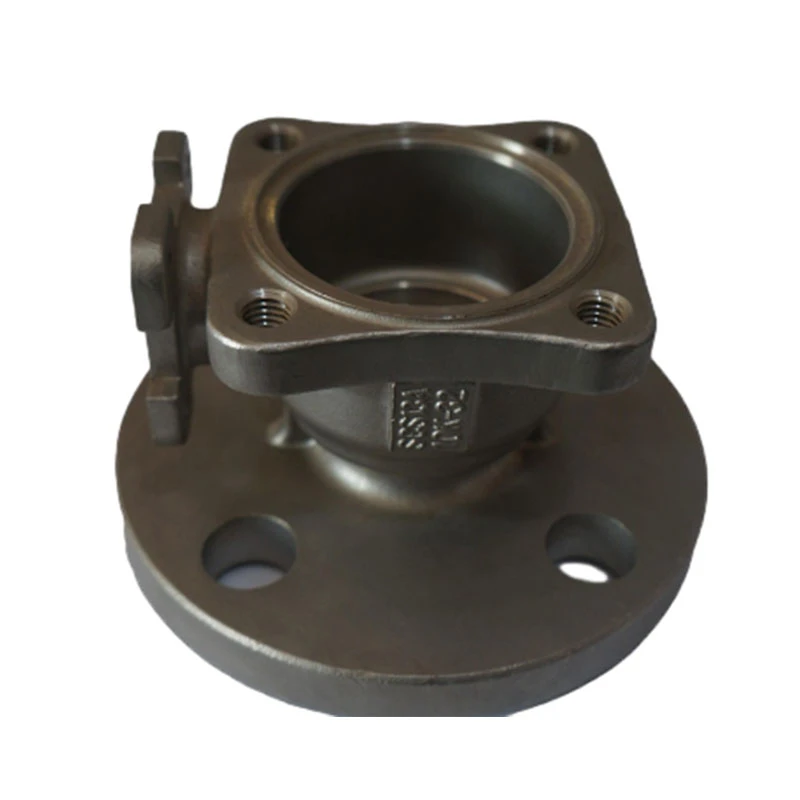OEM Die Casting Manufacturer for High-Quality Custom Solutions and Services
The Evolution and Importance of OEM Die Casting Factories
In today's highly competitive manufacturing landscape, Original Equipment Manufacturers (OEMs) are consistently seeking efficient and cost-effective production methods to meet the growing demands of various industries. One such method that has gained prominence is die casting, a process that allows for the mass production of metal components with high precision and consistency. As a result, OEM die casting factories have become vital players in the global supply chain, providing essential parts for everything from automotive components to consumer electronics.
Understanding the Die Casting Process
Die casting is a manufacturing process that involves forcing molten metal into a mold cavity under high pressure. This method is particularly useful for creating intricate shapes and designs with high dimensional accuracy. The most commonly used metals in die casting processes include aluminum, zinc, magnesium, and, to a lesser extent, copper and lead. The key advantages of die casting include exceptional surface finish, tight tolerances, and superior mechanical properties, which make it an ideal choice for OEMs in various sectors.
There are two primary methods of die casting hot chamber and cold chamber processes. The hot chamber technique is best suited for metals with low melting points, such as zinc and lead, while the cold chamber process is typically used for metals that require higher melting points, like aluminum and magnesium. Die casting factories often employ both methods, ensuring they have the flexibility to cater to a diverse range of customer needs.
The Role of OEM Die Casting Factories
OEM die casting factories serve as the backbone for many industries by supplying them with high-quality components essential for their products. The automotive industry, for example, relies heavily on die casting for producing parts such as engine blocks, transmission housings, and wheels. These components must meet stringent safety and performance standards, making the precision and reliability offered by die casting indispensable.
oem die casting factory

Moreover, the demand for lightweight and fuel-efficient vehicles has accelerated the use of aluminum die casting in automotive manufacturing. As companies strive to reduce weight and improve efficiency, OEM die casting factories continue to innovate, developing new materials and techniques that enhance performance while minimizing costs.
Beyond the automotive sector, OEM die casting factories play a crucial role in consumer electronics, aerospace, medical devices, and industrial machinery. Many modern electronic devices require complex and lightweight housings, which can be efficiently produced using die casting technology. Similarly, in aerospace, the need for high-strength components that can withstand intense conditions makes die casting an attractive option.
Quality Assurance and Sustainability Efforts
Given the critical nature of the components produced, quality assurance in OEM die casting factories is paramount. Implementing stringent quality control measures and adhering to international standards ensures that the components meet the required specifications and performance criteria. Many die casting factories invest in advanced quality inspection technologies, such as X-ray diffraction and 3D scanning, to detect any defects and maintain high production standards.
Sustainability is also becoming increasingly important in the manufacturing sector, and OEM die casting factories are no exception. Many manufacturers are adopting eco-friendly practices, such as recycling scrap metal and reducing energy consumption during the die casting process. The use of aluminum, a highly recyclable material, aligns with the sustainability goals of many OEMs, making die casting factories a preferred choice for environmentally-conscious companies.
Conclusion
In conclusion, OEM die casting factories play a crucial role in modern manufacturing, offering high-quality, precise, and cost-effective solutions for a wide range of industries. As technology continues to evolve, these factories are adapting by incorporating innovative methods, enhancing quality control, and prioritizing sustainability. The ongoing demand for lightweight, durable components across various sectors ensures that die casting will remain a key manufacturing process for years to come, solidifying the importance of OEM die casting factories in the global economy.
-
Aluminium Pressure Die Casting High-Precision & Durable Solutions for Complex PartsNewsJul.08,2025
-
Top Aluminum Sand Castings Manufacturer – Precision Green Sand Castings for Industrial NeedsNewsJul.08,2025
-
Precision Lost Wax Casting Quotes – High Accuracy Custom Parts Lost Wax Precision Casting ServicesNewsJul.07,2025
-
High-Quality Sand Used for Casting - Superior Sand for Sand Casting ProcessesNewsJul.07,2025
-
China Supply High End Metal Stamping Parts Sino - Precision Manufacturing FactoryNewsJul.06,2025
-
High-Quality Automotive Investment Casting Services Precision & Sand Casting SolutionsNewsJul.06,2025















